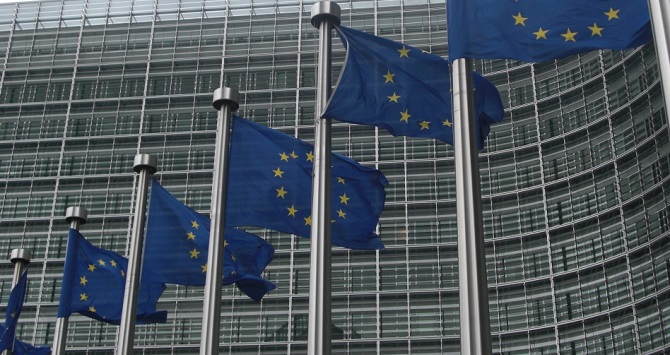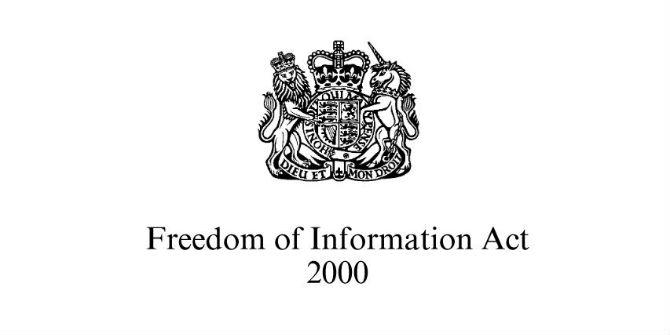 Professor Sonia Livingstone, project director of the EU Kids Online research project, looks at the implications of two new reports released by Ofcom last week on digital habits, arguing that there is still much to be done to improve children’s experiences online.
Professor Sonia Livingstone, project director of the EU Kids Online research project, looks at the implications of two new reports released by Ofcom last week on digital habits, arguing that there is still much to be done to improve children’s experiences online.
In commenting on Ofcom’s 2014 Children and Parents: Media Use and Attitudes report, I argued that children are still not gaining many of the benefits of the digital age – partly because we don’t know what we want for them (or what they want for themselves); we do not as a society provide enough varied, imaginative and yet child-friendly resources for them; and often children or their parents and teachers do not know what is or could be available to them.
 As the image of the ‘ladder of opportunities’ illustrates, many teens are sharing content or even making videos. But does that really make them the skilled and expressive creators, critics or civic participants online to the degree that advocates of children’s rights and youth voice have hoped of the digital age? The findings suggest not, for most do not get far up the ladder (as EU Kids Online has also found in other European countries).
As the image of the ‘ladder of opportunities’ illustrates, many teens are sharing content or even making videos. But does that really make them the skilled and expressive creators, critics or civic participants online to the degree that advocates of children’s rights and youth voice have hoped of the digital age? The findings suggest not, for most do not get far up the ladder (as EU Kids Online has also found in other European countries).
Last month the EC-funded thematic network POSCON (Positive Online Content and Services for Children in Europe), which had brought together institutions, organisations and companies to exchange experience and best practice, published a lively volume of best practice examples from all over Europe – including CBeebies and Toca Boca – which is free for download for practitioners and producers.
Let’s hope that more such content is produced, because a report just released by EU Kids Online shows that  across seven European countries, fewer than half of children say it is ‘very true’ that ‘there are lots of things on the internet that are good for children of my age’. Most important, fewer said this in 2014 than in 2010, especially in non-English speaking countries, especially among girls and younger children. So if we are to inspire today’s children to make wider and deeper use of the internet, providers of online content and services will need to do more.
across seven European countries, fewer than half of children say it is ‘very true’ that ‘there are lots of things on the internet that are good for children of my age’. Most important, fewer said this in 2014 than in 2010, especially in non-English speaking countries, especially among girls and younger children. So if we are to inspire today’s children to make wider and deeper use of the internet, providers of online content and services will need to do more.
Now consider that, as Ofcom’s new 2014 Digital Day research shows, UK 11-15s are squeezing nine and a half hours’ worth of media and communications activity into just over seven hours each day, one wonders whether this is well spent time, and whether it could be better spent either offline or, my point here, also online? Many commentators seem to find it easier to focus on the amount of time spent online than on the quality of that time. But if the quality were high (and it would be good to have some public debate on what this might mean, and who should make such an assessment), there might be less worry about the quantity, unless other activities are directly suffering. And it is possible other activities are suffering – the same EU Kids Online report shows a recent increase among 11-16 year olds in Europe in the proportion of children whose internet use meant that they spent less time with family and friends or doing schoolwork or who felt bothered when they could not be online.
The emerging and converging digital environment offers opportunities both to participate in that environment (by doing the kinds of activities shown in the ladder of opportunities) but also to participate in the wider society through using digital contents, tools and networks to reach new forums or other audiences. For those concerned to support and promote children and young people’s expression, creativity, and participation in society, this latter goal is a far more ambitious one, even though, frustratingly, Ofcom does not use its significant resources to research this interpretation of the citizen interest in digital communications. But focusing just on the take-up of online resources, it’s noteworthy that the second report Ofcom released last week – Internet Citizens 2014 – shows UK adults are not increasing their uses of the internet for government services, health information or educational content. Moreover, as one suspects for the measures of children’s online activities shown in the ladder above, adult take up of such benefits is heavily stratified by socio-economic status.
For children and young people, heralded as the digital natives yet rarely considered as citizens (rather than consumers), a bigger change is needed – in mindset as well as resources. A recent report by my LSE colleagues suggests that the barriers here are less access to digital media and more a wider lack of trust and efficacy – young people will only really engage with digital media for deeper and wider purposes if they believe their contributions will be valued and their voices heard. Until then, society will continue to worry about the time they spend online as if this reflects a lack in young people rather than in the opportunities that society has to offer them.
I will end with a positive finding from EU Kids Online’s new report, however: for when we compared the balance of risks and opportunities online reported by children in Europe, it was striking to discover that in Denmark, Italy and Romania (and, less, in Ireland), it is still the case that more opportunities are accompanied by more risk. But in Belgium, Portugal and the UK, children are now benefiting from more online activities without an equivalent increase in risk (and if anything, risk in these countries has declined). It is not, therefore, inevitable that increasing opportunities means increasing risk, as earlier research had suggested. And so this seems a timely moment to call for more efforts to support and enhance children’s online opportunities – to match the considerable (and in many ways successful) efforts already invested in reducing the risk of harm.
This article gives the views of the author, and does not represent the position of the LSE Media Policy Project blog, nor of the London School of Economics.






5 Comments